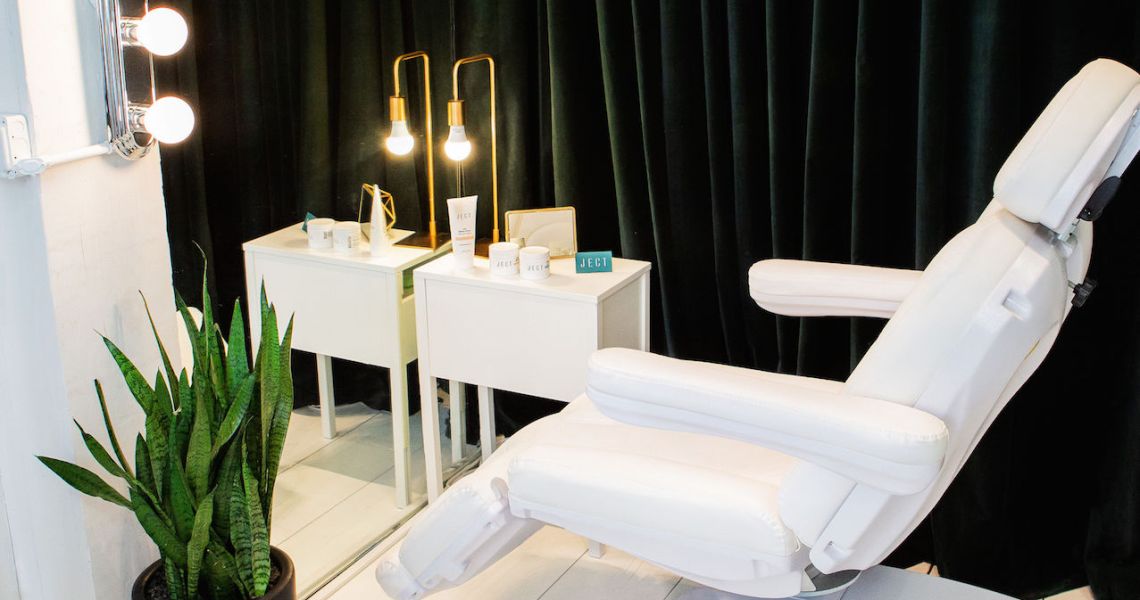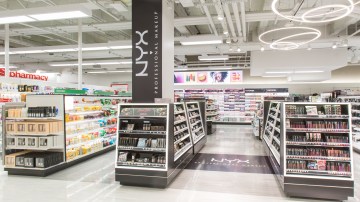Botox and dermal filler treatments are being taken out of behind-closed-door settings and into open-format, social environments in the latest medical aesthetic bars.
Companies like Plump, which launched in May 2018, and three-month-old Ject and have helped drive the open-concept idea, allowing customers to receive beauty services in public or semi-private spaces. While injectable bars like GoodSkin, Alchemy43 and Botox Labb have managed to untether select treatments from doctor’s offices, they still keep procedures in private settings. Now, newer businesses are finding ways to innovate on the injectable bar concept. New York-based Plump expanded to a second location in the Upper East Side earlier this month and will open a third NYC space by early 2020 before venturing into Miami. Ject will open its second location in the Hamptons in July.
“The open concept is about [medical aesthetics] not being a secret and breaking down the taboos. It’s a way to normalize these services,” said Devon Nagelberg, Ject cofounder and head of brand. “It’s a social occasion [for millennials]. They bring friends to appointments or have group appointments.” Nagelberg declined to say what percentage of appointments are by pairs or groups, but said seeing patients in multiples has trended upward and is becoming a “sizable” portion of business. Ject’s average customer is between 23 and 38 years old.
Millennial women, in particular, have been seeking out medical aesthetic procedures, and Allergan — the maker of Botox — has been actively marketing its product as an anti-aging solution. A 2018 survey by RealSelf of about 2,000 adults showed that interest in Botox was increasing the fastest among women 18 to 24 years old. Overall, demand for injectable products under brand names like Botox, Dysport and Xeomin rose 3%, while fillers such as Juvederm and Restylane rose 2%, according to the American Society of Plastic Surgeons’ 2018 report.
When a customer walks into Ject’s West Village location, they are greeted by a velvet sitting area, a welcome sign on a table that says “Need money for Botox,” and a photo booth for them to show off their before-and-after results on social media. Treatment spaces are only separated by a curtain and can be drawn back. Plump takes the a similar approach: Its locations include a tea bar, an art installation of empty Botox vials and a pink wall for Instagrammable moments.
At Plump, approximately 90% of its customers are between 18 and 35 years old, and 15% of all clients bring a friend, said Dr. Alexander Blinski, cofounder and chief medical officer of Plump. He said the business has seen a 15% month-over-month increase in customer growth since launch, but declined to state yearly revenue.
“The consumer is not only more open to getting cosmetic [and] injectable enhancements, but they are also more open to sharing their experience,” he said, adding that customers are referring friends via word of mouth.
This laid-back environment also allows the cautiously curious to open up, both Nagelberg and Blinksi said. Friends offer social support for new customers and sometimes tag along to see it performed and ask their own questions before booking an appointment.
“We see a lot of clients who bring a guest to an appointment, [and] they end up with a treatment themselves,” Blinski said.




